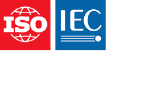Resumen
ISO/IEC 14496-20:2008 defines a scene description format (LASeR) and an aggregation format (SAF) respectively suitable for representing and delivering rich-media services to resource-constrained devices such as mobile phones.
LASeR aims at fulfilling all the requirements of rich-media services at the scene description level. LASeR supports:
- an optimized set of objects inherited from SVG to describe rich-media scenes,
- a small set of key compatible extensions over SVG,
- the ability to encode and transmit a LASeR stream and then reconstruct SVG content,
- dynamic updating of the scene to achieve a reactive, smooth and continuous service,
- simple yet efficient compression to improve delivery and parsing times, as well as storage size, one of the design goals being to allow both for a direct implementation of the SDL as documented, as well as for a decoder compliant with ISO/IEC 23001-1 to decode the LASeR bitstream,
- an efficient interface with audio and visual streams with frame-accurate synchronization,
- use of any font format, including the OpenType industry standard, and
- easy conversion from other popular rich-media formats in order to leverage existing content and developer communities.
Technology selection criteria for LASeR included compression efficiency, but also code and memory footprint and performance. Other aims included: scalability, adaptability to the user context, extensibility of the format, ability to define small profiles, feasibility of a J2ME implementation, error resilience and safety of implementations.
SAF aims at fulfilling all the requirements of rich-media services at the interface between media/scene description and existing transport protocols:
- simple aggregation of any type of stream,
- signaling of MPEG and non-MPEG streams,
- optimized packet headers for bandwidth-limited networks,
- easy mapping to popular streaming formats,
- cache management capability, and
- extensibility.
SAF has been designed to complement LASeR for simple, interactive services, bringing:
- efficient and dynamic packaging to cope with high latency networks,
- media interleaving, and
- synchronization support with a very low overhead.
ISO/IEC 14496-20:2008 defines the usage of SAF for LASeR content; however, LASeR can be used independently from SAF.
Informaciones generales
-
Estado: PublicadoFecha de publicación: 2008-12Etapa: Cierre de la revisión [90.60]
-
Edición: 2Número de páginas: 167
-
Comité Técnico :ISO/IEC JTC 1/SC 29ICS :35.040.40
- RSS actualizaciones
Modificaciones
Las enmiendas se emiten cuando se decide que puede ser necesario agregar nuevo material a un documento de normalización existente. También pueden incluir correcciones editoriales o técnicas que deban aplicarse al documento existente.
Ciclo de vida
-
Anteriormente
RetiradaISO/IEC 14496-20:2006
RetiradaISO/IEC 14496-20:2006/Amd 1:2008
RetiradaISO/IEC 14496-20:2006/Cor 1:2007
RetiradaISO/IEC 14496-20:2006/Cor 2:2008
-
Ahora
PublicadoISO/IEC 14496-20:2008
Las normas se revisan cada 5 años
Etapa: 90.60 (En proceso de revisión)-
00
Preliminar
-
10
Propuesta
-
20
Preparación
-
30
Comité
-
40
Consulta
-
50
Aprobación
-
60
Publicación
-
90
Revisión
-
95
Retirada
Correcciones
Corrigen la edición actual; gratuitas; no incluidas en el texto de la norma existente.PublicadoISO/IEC 14496-20:2008/Cor 1:2010
Modificaciones
Aportan contenido adicional; disponible para su compra; no incluidas en el texto de la norma existente.PublicadoISO/IEC 14496-20:2008/Amd 1:2009
PublicadoISO/IEC 14496-20:2008/Amd 2:2010
PublicadoISO/IEC 14496-20:2008/Amd 3:2010
-
00

